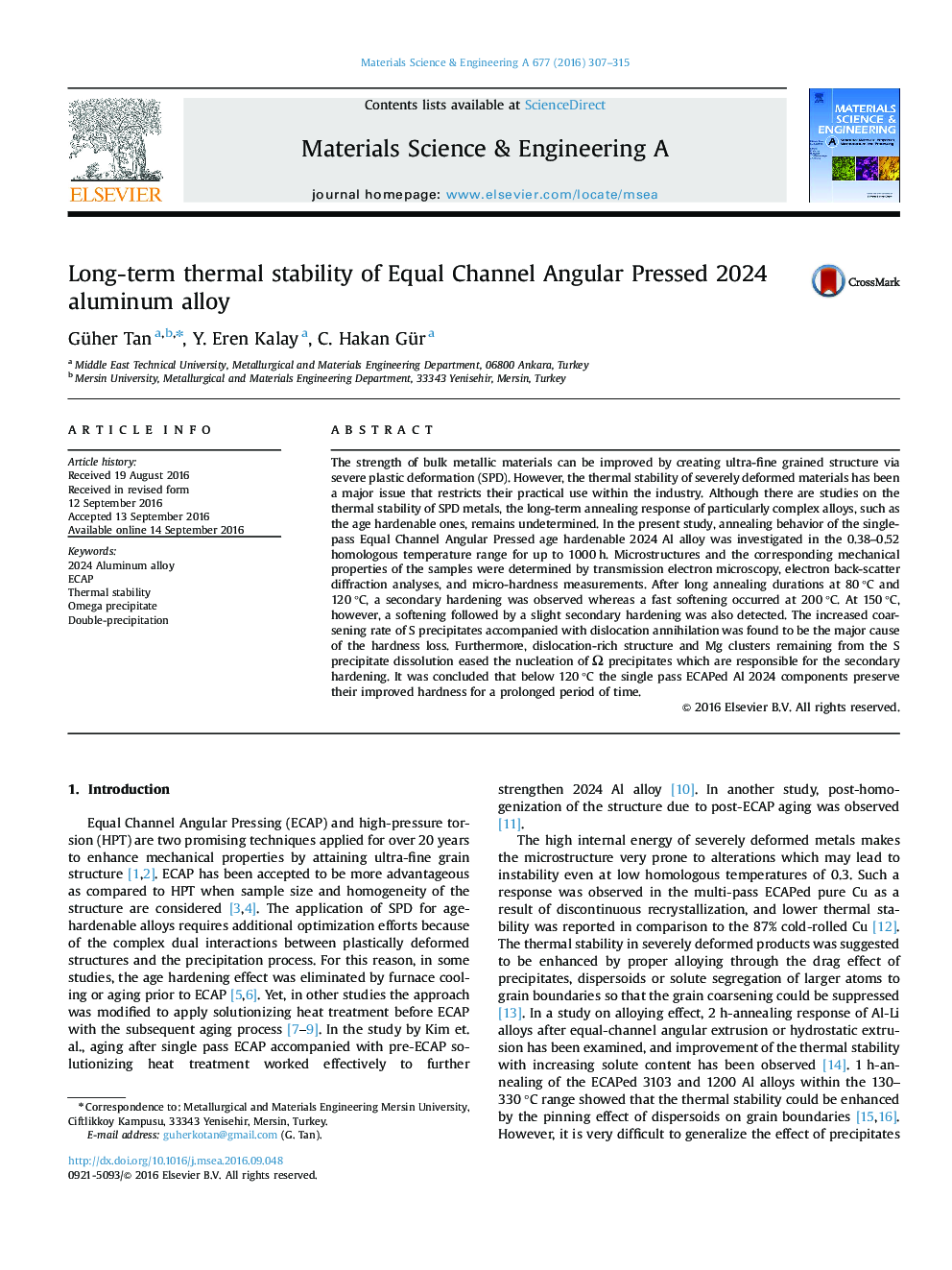| Article ID | Journal | Published Year | Pages | File Type |
|---|---|---|---|---|
| 5456678 | Materials Science and Engineering: A | 2016 | 9 Pages |
Abstract
The strength of bulk metallic materials can be improved by creating ultra-fine grained structure via severe plastic deformation (SPD). However, the thermal stability of severely deformed materials has been a major issue that restricts their practical use within the industry. Although there are studies on the thermal stability of SPD metals, the long-term annealing response of particularly complex alloys, such as the age hardenable ones, remains undetermined. In the present study, annealing behavior of the single-pass Equal Channel Angular Pressed age hardenable 2024 Al alloy was investigated in the 0.38-0.52 homologous temperature range for up to 1000 h. Microstructures and the corresponding mechanical properties of the samples were determined by transmission electron microscopy, electron back-scatter diffraction analyses, and micro-hardness measurements. After long annealing durations at 80 °C and 120 °C, a secondary hardening was observed whereas a fast softening occurred at 200 °C. At 150 °C, however, a softening followed by a slight secondary hardening was also detected. The increased coarsening rate of S precipitates accompanied with dislocation annihilation was found to be the major cause of the hardness loss. Furthermore, dislocation-rich structure and Mg clusters remaining from the S precipitate dissolution eased the nucleation of Ω precipitates which are responsible for the secondary hardening. It was concluded that below 120 °C the single pass ECAPed Al 2024 components preserve their improved hardness for a prolonged period of time.
Related Topics
Physical Sciences and Engineering
Materials Science
Materials Science (General)
Authors
Güher Tan, Y. Eren Kalay, C. Hakan Gür,
